Why Read Fairy Tales? (5 Excellent Reasons)
This post covers five reasons why fairy tales are not only good, but even crucial for our children and their well-being. If you’ve been wondering why to read fairy tales, this post is for you! I’ll also share some fantastic C. S. Lewis quotes regarding fairy tales, and podcast recommendations if this topic interests you.
It’s a very good question. There are so many things we could be reading to our children, and we only have a limited time in which to do so. We will never have time to read everything! We could be reading informational non-fiction, history, historical fiction, classics, contemporary fiction, Bible stories, devotionals, and the list goes on. Our choices are innumerable – so why read fairy tales? Aren’t they a bit frivolous? Juvenile? Perhaps even heretical, with all those witches and fairies and magic and such? Or often, frequently, just plain weird?
In this post I am going to attempt to convince you that fairy tales are not only good but even necessary for my children and for yours. Read on, and see if you agree!
Note: These ideas are not original to me. One year ago, I could not have answered the fairy tale question with any certainty, but a series of podcasts that I heard last summer changed my mind completely and I have spent the past nine months thinking about this subject frequently. Angelina Stanford is the genius behind those podcasts, and I will link to them throughout the course of this post, but what I am hoping to do here is to summarize her main points with clarity and simplicity. I do not feel certain that I have succeeded, but if you remain unconvinced I hope you will listen to one of these podcasts in order to hear older and wiser minds than my own.
What Are Fairy Tales?
Defining our terms is always a solid place to begin. Oxford defines a fairy tale as a “children’s story about magical and imaginary beings,” and Wikipedia explains the genre of fairy tales as “short stories belonging to the folklore genre, featuring magic, enchantments, and mythical or fanciful beings.” If you have read fairy tales yourself, you will notice two more features: that the main character is always an ordinary “everyman” who obtains supernatural help on his/her journey (rather than being a demi-god or true “hero”), and that they must have a happy ending; if they don’t, they fall into a different genre.
Finally, not all fairy tales involve fairies, and the term itself is not a reflection on the truth of a story but rather of its form. In fact, Angelina Stanford argues quite eloquently that the gospel itself is in the form of a fairy tale, which does not mean that it is untrue, but simply that it follows the story pattern of an ordinary man who finds himself stuck, is rescued by a supernatural intervention, and in the end lives happily ever after. With these guidelines in mind, let’s talk about why they are important.
Five Reasons Why We All Need Fairy Tales

Because There is More to Life Than What We Can Experience With Our Senses.
“We do not look at the things which are seen, but at the things which are not seen. For the things which are seen are temporary, but the things which are not seen are eternal.” ~ 2 Corinthians 4:18
If you are not a Christian you may not agree with this, but I am going to explain it anyways because I believe it is foundational to the idea of fairy tales. As Christians we acknowledge, at least in words, that there is a vast spiritual realm completely invisible to our senses: one inhabited by angels, demons, spirits, and God himself. We say we believe in angelic messengers and spiritual battles and the invisible workings of the Holy Spirit, but do our actions – and our choices of books – support this?
Some people will argue against fairy tales because they are not “real,” by which they mean that the magic and fantastic story lines cannot be explained by natural forces in our physical world – but do we really want to encourage our children to only believe in that which they can see? We live in a modern culture which says, implicitly if not explicitly, that the only true reality is that which we can experience with our senses. This is an anti-Christian belief. It is in fact dangerous to imply to our children, through the choices of books we read to them, that the only true reality is the physical reality.
Instead, we should want to encourage the wonder, imagination, and delight that a good fairy tale produces. The best fairy tales give a physical representation to spiritual realities, and though our children probably will not immediately make those connections, they will absorb a bit of the magic and wonder of the stories, which is a very good thing. Angelina Stanford said, “Fairy tales help us to perceive the reality, the transcendent reality, the holiness and goodness that is beyond the senses,” and we could all use a little more of that in our lives.
Because Our Children Need a Robust Imagination.
“[In your world] I have another name. You must learn to know me by that name. This was the very reason why you were brought to Narnia, that by knowing me here for a little, you may know me better there.” ~ Aslan, in The Voyage of the Dawn Treader by C. S. Lewis
Fairy tales, fantasy, science fiction, tall tales, and mythology are wonderful tools for awakening our child’s imagination. And let me ask you, how will a child without an imagination be able to believe in a God that he cannot see and a heaven that he cannot imagine? An imagination is necessary to our faith not because these things are untrue, but because they are invisible – and we all need some practice in imagining a world beyond this one to help us more fully believe in the Biblical world beyond this one.
I want my children to have plenty of practice in imagining creatures and places and things that they have never seen, so that when they encounter Moses parting the Red Sea, or Elisha showing Gehazi the vast armies of angels, or Gabriel speaking to Mary, they will not scoff at the ridiculous idea but delight in the miracle. An excellent way to raise a skeptic would be to take a child and only read him real, factual, non-fiction books – and then try to convince him to believe in an invisible God and a spiritual world.
Because Children Already Know that Evil Exists.
“Since it is so likely that they will meet cruel enemies, let them at least have heard of brave knights and heroic courage. Otherwise you are making their destiny not brighter but darker.” ~ C. S. Lewis, “On Three Ways of Writing For Children”
This is an inescapable part of life which your child has likely already encountered. It could have happened when he overheard you discussing the news or when his beloved pet died or when a friend was cruel to him or when he read anything at all from his history book; no matter how it happened, our children know, both instinctively and experientially, that evil and death are part of our fallen world.
What they may not yet know is that one courageous child can make a difference, or that redemption is possible, or that good will triumph in the end. This is what the fairy tale teaches him; that there is an order to the universe, that evil stepmothers will be punished, and that brave knights will always rescue the princess. Don’t we all need that reminder?
If this feels overly optimistic to you, let me say firstly that I would rather my children begin their lives with hope and optimism – there will be plenty of time for cynicism later; and secondly, that as Christians we do in fact look forward to an ultimate victory, a final righting of all wrongs. This is not fantasy but reality! Although we don’t yet see it, the happily-ever-after fairytale ending is in fact more true to reality than most non-fiction we read.
So please, parents, do not fear for the child who reads about murderous dragons, or the evil Cyclops, or the soul-sucking dementors. Instead, fear for the child who has not yet read of the knights who will slay the dragons, or Odysseus who conquers the Cyclops, or Harry and his friends who fight off the dementors! Evil will be defeated in the end, and I want my children to know this truth with every fiber of their being.
Because Our World Is Already Magical.
“[The boy who reads fairy tales] does not despise real woods because he has read of enchanted woods: the reading makes all real woods a little enchanted.” ~ C. S. Lewis, “On Three Ways of Writing For Children”
Nature abounds with miracles, and fairy tales help to open our eyes to the wonder around us. Just because we have made scientific advances that allow us to “explain” how some parts of our world work does not mean that it is less magical. We may know that butterflies have an instinct that causes them to migrate thousands of miles to Mexico, but how did that instinct get there? We may know that a sperm and egg join to create a baby, but how is that very small human filled with a personality and a soul and a spirit of their own?
Consider the far reaches of space, the depths of the ocean, the inner workings of our own brains, the complex interactions and dependencies between plant and animal species, or the simple design of a blade of grass. Science explains some parts, but not all, and as for the rest? They are miracles! Magic! I firmly believe that in every field, no matter how far our knowledge may expand, there will always be unknown answers and unsolved mysteries – a bit of magic, if you will – and this is even more true for children.
Their world is already filled with unexplainable wonders, so we don’t need to fear for them when they read of other magical realms. It will only make them fall in love with God’s creation here on earth even more.
Because Fairy Tales, Like All Great Literature, Contain Truth.
“The peculiar quality of the ‘joy’ in successful Fantasy can thus be explained as a sudden glimpse of the underlying reality or truth. It is not only a ‘consolation’ for the sorrow of this world, but a satisfaction, and an answer to that question, ‘Is it true?'” ~ J. R. R. Tolkien, On Fairy-Stories
Perhaps, like me, you have heard people say that stories are either a window or a mirror: either they are a window into another time/place/culture/experience or they show us ourselves. This may be true in some stories, and these stories may have some benefit in doing so, but that is not why we read literature. Great literature, whether it be Shakespeare, Dickens, Sleeping Beauty, or the Wind in the Willows, pulls back the veil on this physical world just a bit and shows us some eternal truth.
Frankly, it does not matter what we think of these books or if we can “see ourselves” in them. These books do not care; they are having a conversation with each other, each contributing a bit of their own transcendent beauty, and when we read them, we get a peek into that conversation and the light of it illuminates and transforms our lives forever.
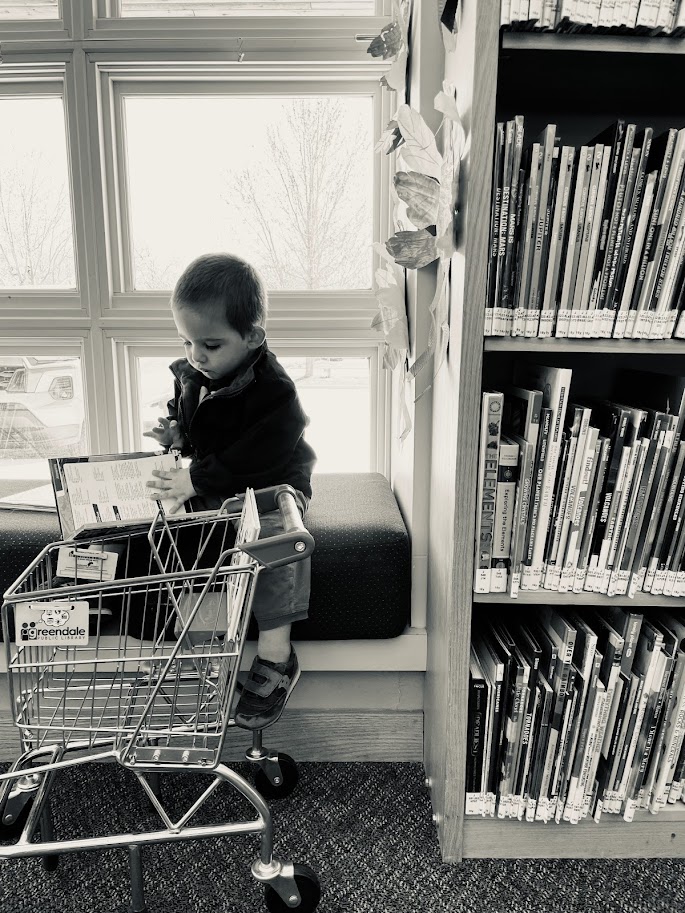
Why read fairy tales? Well, if you are an atheist who wants to raise a child without an imagination, a child who will never believe in a spiritual world or a God in heaven, a child with no wonder or delight in the miracles of nature, one whose fears will never find answers and one who will struggle to see the truths found in great literature, then you would do well to skip the fairy tales.
If not – then read on! I am certain you will never regret it.
More Podcasts To Enjoy
Why Read Fairy Tales? – The Literary Life Podcast
Why Read Pagan Myths? – The Literary Life Podcast
The Building Blocks of Story – The New Mason Jar Podcast
Witches, Wizards, and Magic, Oh My!! – The Literary Life Podcast
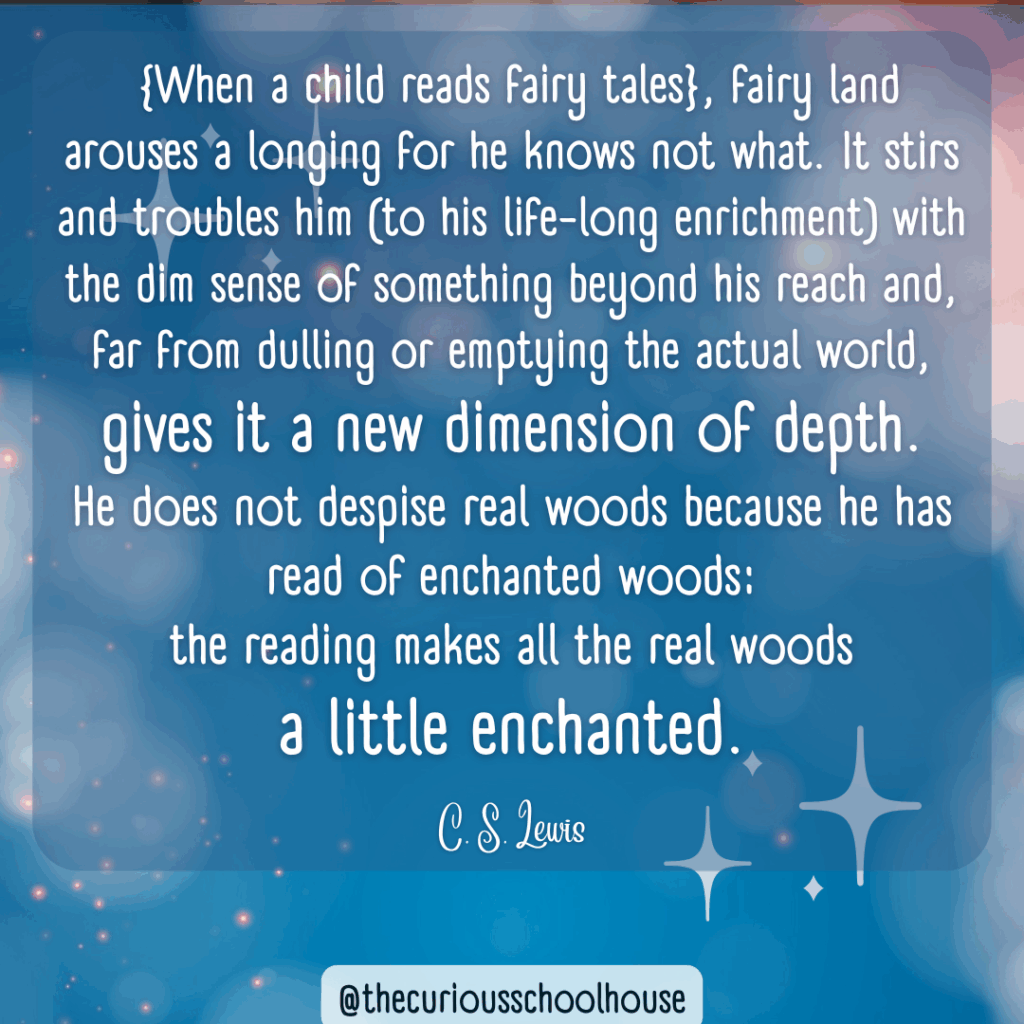

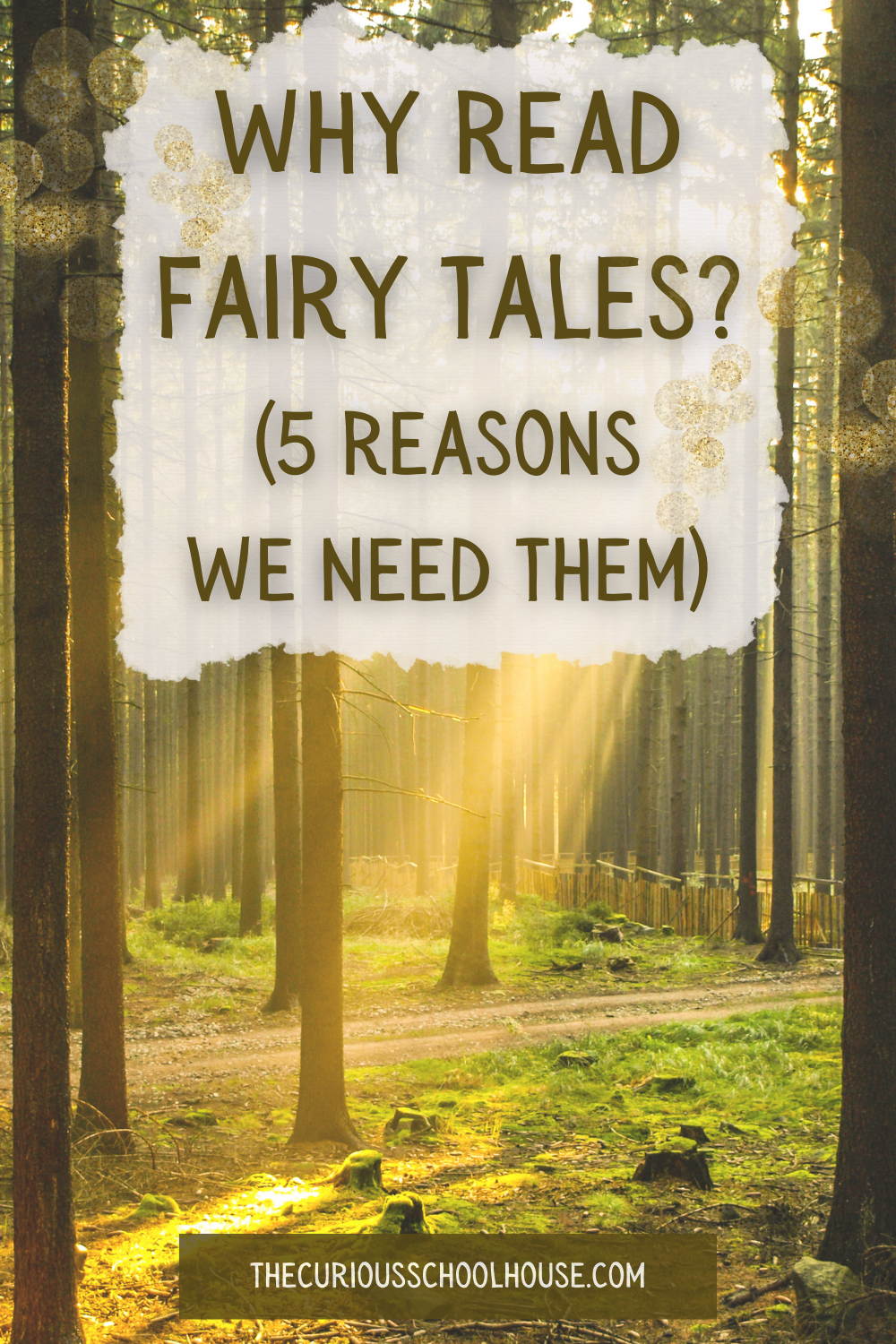
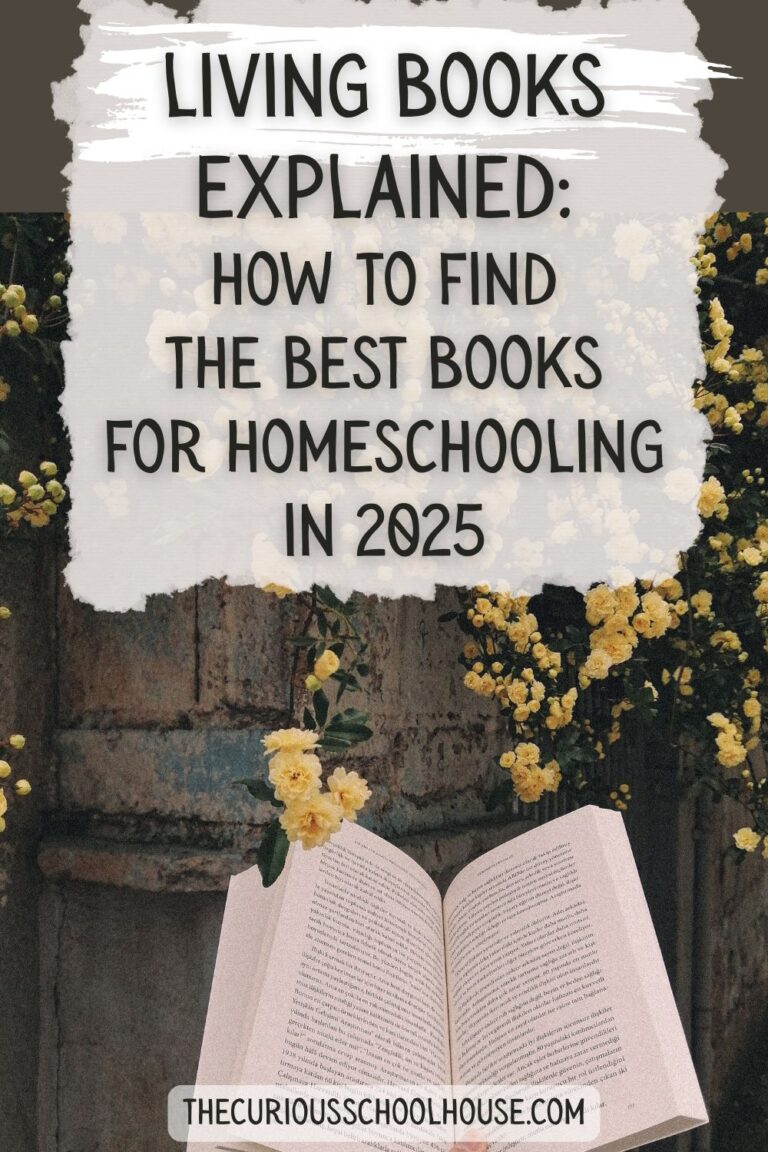
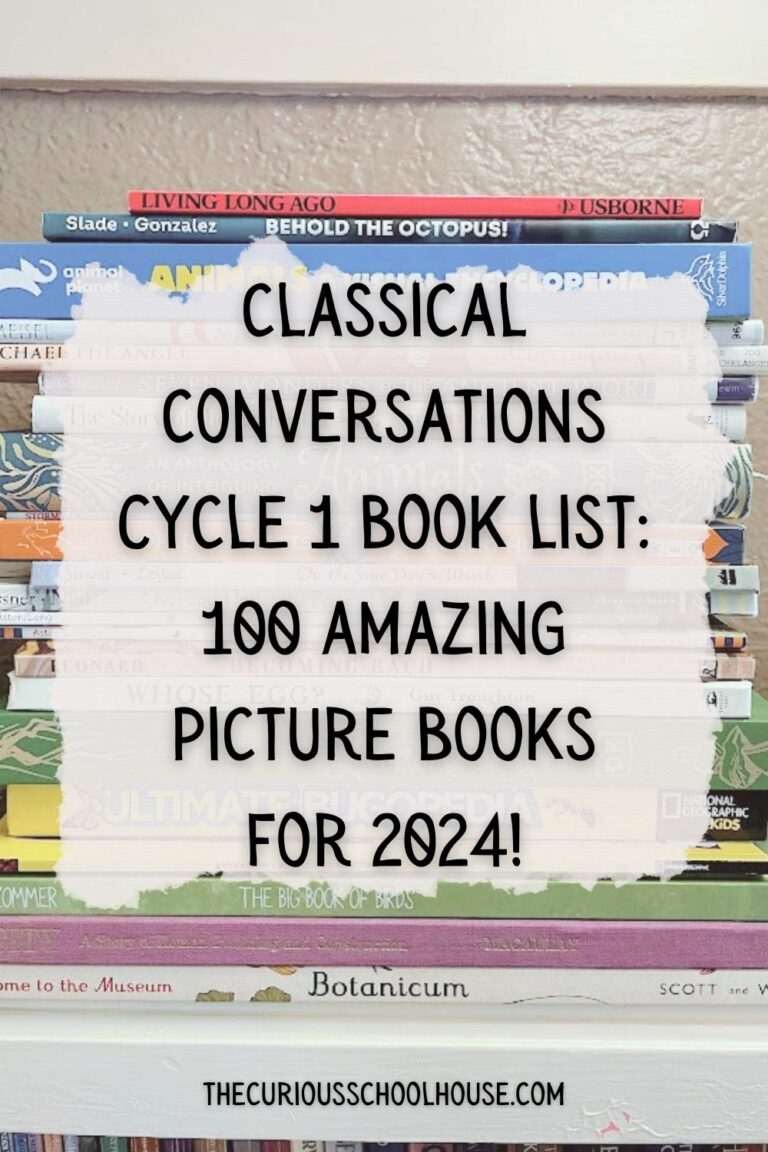


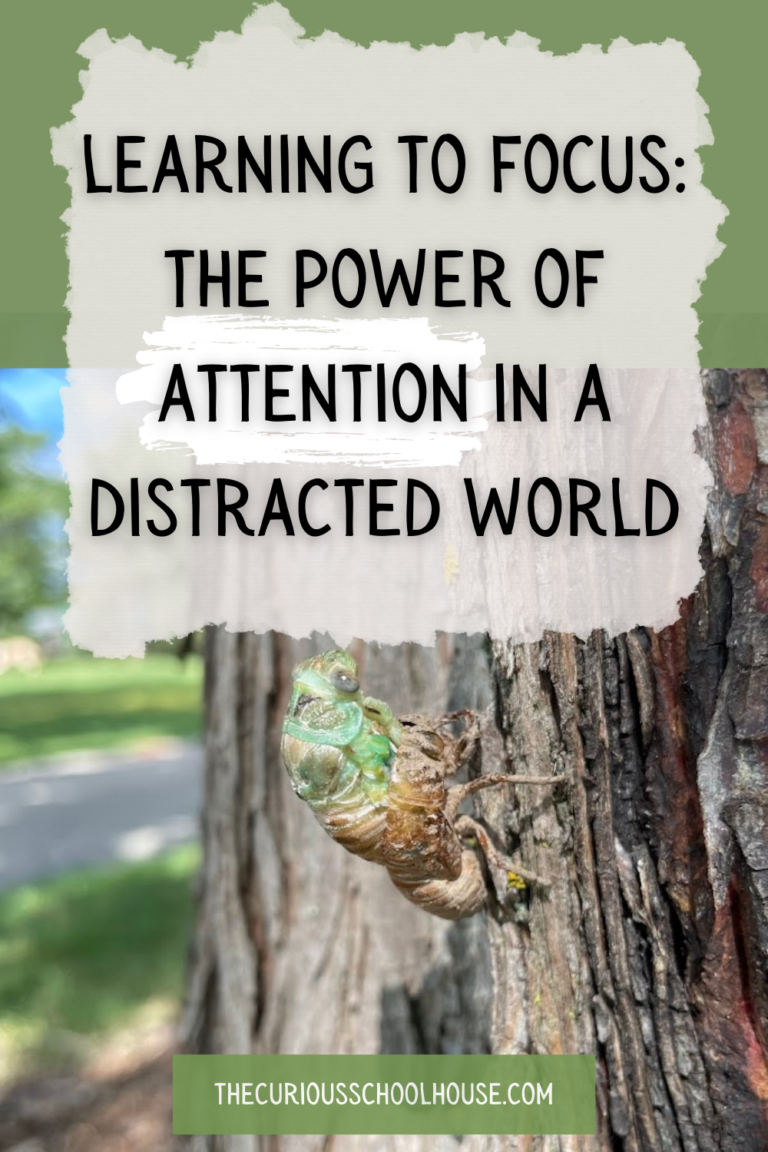

These episodes have all just been in my playlist! What encouragement to keep giving our kids the rich classics! ❤️
yes indeed! I bet you’ll love listening to them!
Good thoughts! How many times did I read the Chronicles of Narnia to you and your brothers? My reasons were not nearly as refined as yours. I just did it because it was fun!
sometimes that’s all the reason you need! 🙂
Yes, I wholeheartedly agree! It is also my suspicion that the spiritual realm is inhabited by many more types of beings than the ones you listed, which are primarily all that is spoken of in the modern church. After all, would God make such a diverse physical world to only have make a simplistic spiritual one? I bet not! I also love Tolkien and Lewis’ insights on this subject. Indeed, what a very enchanted world we live in!
you could be right!! 🙂
One thing I love about reading fair tales and fantasy, is when a character or ‘the good guys’ overcome an obstacle or enemy where they are tremendously outnumbered or at a outrageous disadvantage. I want my children to be inspired to never give up, no matter how the odds may be stacked against them.
yes, good point!
This is an excellent, succinct explanation of Angelina’s ideas from her podcast, and I want to thank you so much for it! I just finished her “Why Read Fairy Tales” class, which was incredible, but hard to distill into fewer words for myself. You’ve done a great job and I agree wholeheartedly with all you’ve said. Thank you so much!
Thank you so much for the kind words!! I have learned SO much from the literary life podcast – and haven’t had a chance yet to take any of her classes but I hope to someday soon!